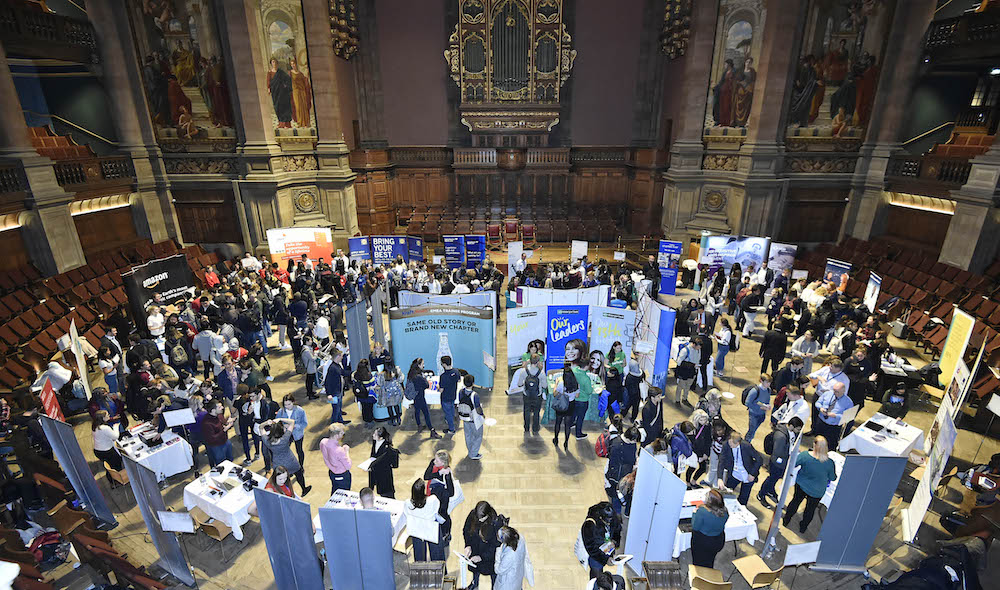
In this post, Lucy Everett, Employer Engagement Manager in the Careers Service, explains why placements and fieldwork are a great start to career exploration that will also be valued by future employers…
The value of placements and fieldwork is fairly self-explanatory: both build work experience. This is essential to help students make more informed choices about the kind of work they will really enjoy, and also because employers really value that experience in their recruitment processes.
So what is the value of work experience from an employer’s perspective?
The Institute of Student Employers, which represents most large scale recruiters, reports that 52% of interns are rehired into graduate roles, meaning over half of interns, usually in their penultimate summer of university, get a graduate job from their internship.
Similarly, 80% of the Times Top 100 Graduate Employer’s offer paid work experience programmes, including taster experiences for first and second year students. And over a third warn that graduates with no previous work experience are unlikely to be successful during the selection process.
These are mostly large scale organisations, but what about smaller employers?
In January 2018, the Careers Service did research with our Graduate Employers partners, including a number of SMEs on Future Needs and Current Perceptions, which reinforced these messages:
Work experience is one of the most important factors [in what employers are looking for] and relevant work experience is highly valued. For some organisations, it can mitigate lower academic attainment.
and…
Whilst discipline knowledge counts, employers place at least equal weight on long-term and varied extra-curricular activities.
In the third sector, many charities will also look for volunteering experience. All experience counts, and University of Edinburgh’s vibrant student society network through the Student’s Association and Sports Union all give students excellent opportunities to explore what makes them tick. And with the majority of UK graduate employers and roles being degree agnostic, the world really can be their oyster.
During the recruitment process, employers always feed back that the ability to articulate what someone has learnt from their work experience is key to success. The Edinburgh Award is a great way for students to reflect on the skills acquired through these experiences and then be able to describe them to potential employers.
We put our money where our mouth is to offer students work experience in a number of areas, including part-time work in the Careers Service, and through coordinating the Employ.Ed internship programmes, which offer paid work experience in SMEs, on campus and for PhD candidates.
Importantly these are all paid. The Sutton Trust recently flagged the impact of unpaid internships on social mobility, and there is a bill making its way through parliament to ban unpaid internships more than 4 weeks long.
Sometimes the terminology can be confusing, with placement and internship used interchangeably. Placements are usually part of a course and potentially credit bearing. Whereas internships are usually outwith studies, over the summer, and since candidates are usually classed as a worker, they need to comply with national minimum wage legislation.
The Careers Service advertises around 9,500 vacancies a year on MyCareerHub including around 2500 placements or internships with employers from a broad range of sectors. But also a huge range of part-time, on-campus and vacation work opportunities, all of which are a great way to try out future career options to see if they are the right fit.



Thanks, I really enjoyed reading your blog about the breadth and range of opportunities that are available to our students at all stages. You also mentioned the Edinburgh Award – by signing up for this, it means that this work experience activity will be shown on the student’s HEAR, so it can be highlighted, although it does not gain academic credit. There is another option. If the student is in 1st or 2nd year and they are doing their work experience / internship over the summer vacation, they could also use that opportunity to do a Student-Led, Individually-Created Course (SLICC), where they capture their learning in a reflective e-portfolio. This is an academic elective course, for academic credit (20 credits, SCQF Level 8), but it is outside the normal semesters. More information on SLICCs – http://www.teaching-matters-blog.ed.ac.uk/student-led-individually-created-courses-sliccs-learning-and-teaching-beyond-disciplinary-silos/